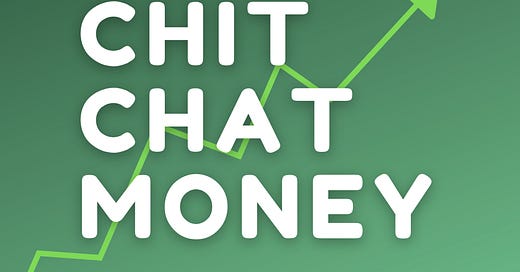3 Things I Thought About Last Week:
Poorly received AAA video games. Electronic Arts released Battlefield 2042 this week. Like many other AAA games (i.e. a big game produced by a major publisher) released recently, it has gotten terrible reviews from users. The first review on Metacritic sums up the disappointment: “This is an unfinished, unpolished and broken game.” While video game players are notoriously picky and seem to have too high expectations for games in general, it looks like EA definitely rushed BF 2042 and should have waited another year or two before releasing it. Commercially, the game seems to be doing fine so far, topping the Steam charts for the week, which from an investor’s perspective is the most important thing. Overall, the BF 2042 release and reception highlight what I think are the two most important factors for video game publisher success going forward:
Attracting developer talent. Making AAA games takes tons of work, and that work will continue to grow as games get more immersive in the coming years. Some companies can accelerate development with internal engines (Activision has multiple Call of Duty engines and EA has transitioned everything to its own Frostbite engine), but in the end, there’s only one way to improve your games: developers, developers, developers. Take-Two Interactive seems to be in the best situation here, more than doubling its developer headcount in the past five years. Activision Blizzard, with the terrible sexual assault scandal that continues to get worse, is likely the worst positioned among the large publishers to attract talent.
Building lasting recurring spending models. If a good game takes 3+ years to develop, then in order to get an acceptable return on that development spend, publishers will likely need to build monetization/engagement strategies that allow games to last for many years. Grand Theft Auto V (published by Take-Two) is the best example of this, but I want to use another title from EA to contrast with the lackluster BF 2042 rollout: Apex Legends. Apex has been a huge growth driver for EA since its launch in 2019 and is apparently close to doing $1 billion in annual sales for the company. The free-to-play title is well-loved by its community because of the consistent and quality updates EA releases for the franchise, which will hopefully provide a durable earnings stream for the indefinite future. If EA just put in 1 - 2 more years of development into BF 2042, it is possible it could have built up the same type of player base, allowing the title to generate profits for an extended period of time. Now, it is likely to fall out of favor within a year or so (unless some major updates come), bringing the franchise back to the drawing board to build its next title, which will likely not come out until 2025 or later. Recurring spending helps bridge the development gap between games, giving studios breathing room and providing more consistent/predictable earnings streams for investors.
Spotify vs. the labels. With a simple tweet from Bucco Capital, we got a nice discussion on Twitter this weekend about Spotify’s relationship with the music labels. The contracts between the music streamer and the big three labels are complicated (check out this piece for a more detailed analysis), but it can be summed up to this: the labels own all the IP, and use this to get ~65% of all the subscription revenue Spotify brings in. This leads many investors to believe the labels have all the power in this relationship, and that Spotify will never be able to raise its gross margin and/or is always at risk of losing a huge chunk of its music content if the labels pull out. I tend to think this risk is overblown for a few reasons. First, imagine you are a music label at the negotiating table with Spotify in 2023. Spotify asks for a reduction in your take rate down to ~63%. You scoff at them, threatening to take all your artists off the platform. Spotify says “Fine. Do it.” You come back to your constituents with the news. Talking to some artists, you explain your rationale: “Spotify is being unfair to us, the label. So we have decided to take a hard stance. You, the artist, would have barely noticed the difference in earnings from this new deal, but I decided to take you off of Spotify, ruining your ability to expand listenership, cutting off a funnel to sell concert tickets and merchandise, and upsetting your existing fans.” How do you think the artists would react to this? Well, we already have the answer, when the Korean label Kakao Entertainment decided to pull their content off Spotify earlier this year. The decision caused an uproar from fans and Kakao’s artists. Kakao caved and closed the original deal within a few weeks (read the full article about it here). Second, think how it would go when this hypothetical executive told investors about the decision to pull all their artists off Spotify. They would be giving up a high margin and fast-growing revenue stream that makes up a large chunk of the company’s earnings power. I doubt the investors would be happy about the decision, especially since it would leave the other labels in an advantaged position. Lastly, Spotify nowadays essentially does the job of a label, helping users discover an estimated 16 billion new artists every month for free. This is why the labels have all been forced to the table paying for Spotify’s discovery/promotional tools, where they pay a reduced royalty rate for in-app promotions of songs/artists.
The Constitution DAO loses to Ken Griffin. The best story from this week was Ken Griffin outbidding the decentralized group that was trying to buy a copy of the U.S. Constitution. It is hilarious that the guy known for front-running order flow on trades was the one outbidding this group that publicized what it was going to bid at an auction. I don’t know if it is possible with these crypto-based crowdfunding things, but pre-announcing what you are going to bid at an auction does not seem like a smart move. The dumbest thing from this whole situation (outside of the fact nobody giving money to the DAO was actually going to own the U.S. Constitution, even if they won) was the gas fees the people had to pay to crowdsource the funds. People have estimated the transfer fees (which is what the gas fees are) could be as high as $5 million for these simple transfers. That is pure insanity. I thought crypto was supposed to get rid of the bad parts of the financial system, not make them worse.
***Our fund, Arch Capital, may own securities discussed in this newsletter. Check our holdings page and read our full disclosure to learn more.***
Catch-up on Our Shows From This Week:
3 Good Reads:
1 Good Listen:
***This week’s sponsor: The Alternative Assets Newsletter***
Investment options are all around us — but if you're only thinking about stocks, you're missing out on some great opportunities.
That’s why we’ve been reading the Alternative Assets Newsletter.
Stefan and Wyatt analyze the heck out of new investment markets, including NFTs, trading cards, video games, sneakers, even fun stuff like LEGO sets, music rights, and islands!
This isn't just about information, either. It's about results. Alternative assets can be a powerful tool for growing your money, and they know exactly how to navigate 'em.
They were the first ones to track these new markets, and their recommendations are already crushing the benchmarks.
Check out Alternative Assets →
Smart and Funny Tweets:



















